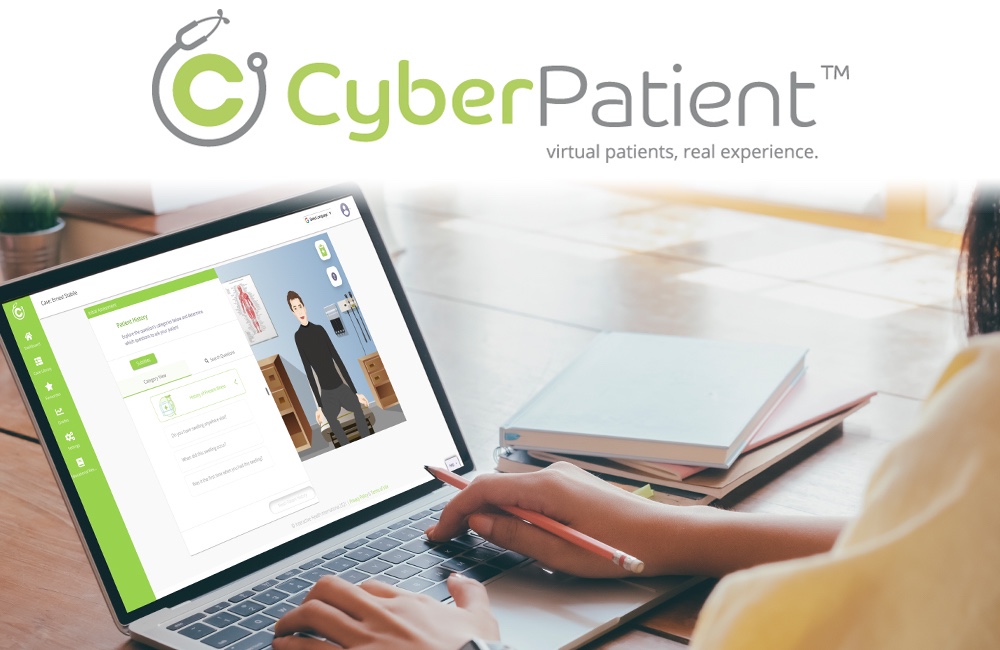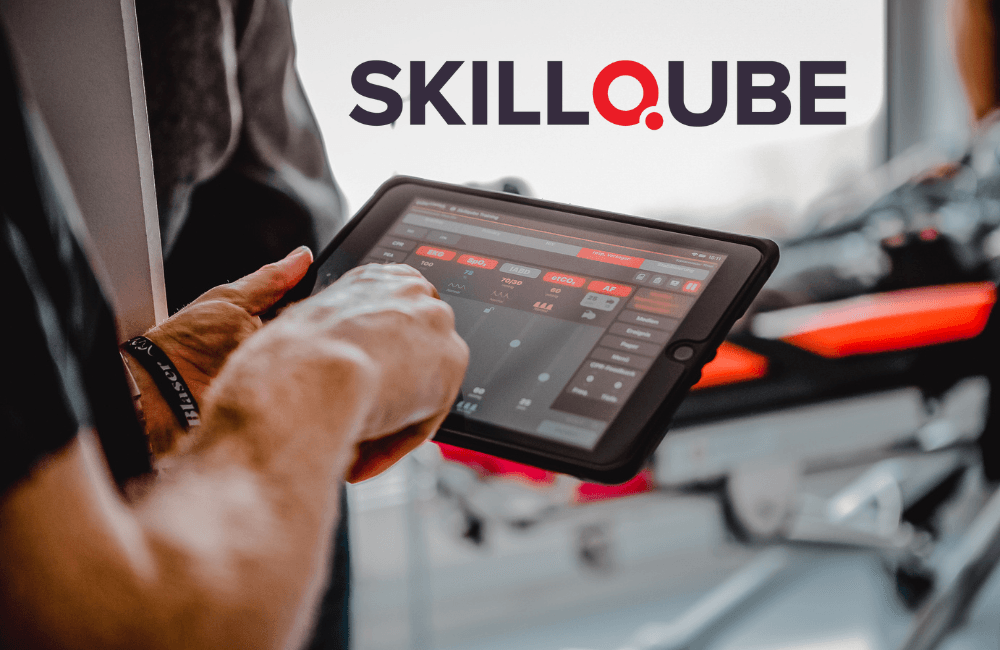The gap between the theory and practice of medicine means that medical learners have to gain practical knowledge on actual patients. This traditional practical method creates unnecessary risks to patients and additional costs to the healthcare system. The risks have the potential to shake the confidence of learners, who may then feel unprepared and less confident. The CyberPatient innovative approach to medical education alternatively offers learners experiential education, without burdening universities and health authorities with additional costs and risks to patient safety.
Thus, the CyberPatient platform serves as an immersive and interactive virtual learning solution designed to close the gap between theoretical knowledge and practical clinical skills. The platform provides educators with a 24/7 virtual hospital to support experiential learning practice, while enabling learners to engage in real-world clinical cases without legal and ethical consequences. CyberPatient’s Learning Management System further allows faculty to develop case objectives in line with their curriculum and learning objectives, while tracking their learners’ development.
CyberPatient cases cover the full continuum of care, challenging learners to sharpen their practical clinical decision-making at every stage in the continuum of care. These include History Taking, Physical Examination, Investigation & Analysis, Planning Case Management, Diagnosis & Treatment, Tests & Imaging, Treatment Planning, Surgery, Post-Operative Management, Follow-up/Final Disposal of Case and finally, Documentation of Medical Records. Currently, over 120+ peer-reviewed clinical cases are available, covering multiple and varied specialties including: cardiology, central nervous system, gastrointestinal, genitourinary, musculoskeletal, obstetrics/gynecology, pediatrics, psychiatry and respiratory.
Traditional medical academic training includes reading textbooks and attending lectures before clinical rotations. A new focus on clinical skills and early engagement with patients has produced challenges as the integration of early clinical exposure in medical schools creates complexity, requiring additional investment, resources, and planning. Another benefit of CyberPatient is the ability for faculty and educators to subsequently provide formative and summative feedback and assessment to ensure clinical competencies.
To continue to support CyberPatient’s mission to reduce medical error and promote patient safety, the company launched a fun and free initiative for learners and faculty to engage with in June 2021. The Summer School Class of 2021 is an opportunity for users to practice cases in CyberPatient within a classroom setting. This stops users from feeling overwhelmed trying to find a case out of the 120 that CyberPatient offers. After signing up, learners will have access to:
- Three classes, four levels, and nine cases to practice
- A supportive environment to help promote success
- Valuable feedback, formative and summative assessment
Learners will complete each case they select per class and score the required grade to advance to the next class. If the learner scores the required pass rate for all three classes, they will receive a personalized course completion letter by CyberPatient CEO and Founder Dr. Karim Qayumi.
Nursing and Medical students, you are invited to join the CyberPatient™ Summer School Class of ’21 – for free. It’s so easy to join and once you complete class 3 you will receive a personalized course completion letter. #medicalstudents #medicalschool #nursingstudent #meded pic.twitter.com/48j0SydrUe
— Cyberpatient (@CyberPatient) June 29, 2021
CyberPatient Company History
During his medical clerkship program and his first on-call session, Qayumi found himself alone in an emergency room surrounded by patients. People were coming in with different medical and surgical emergencies, and he recalls this scenario as mayhem. From his teachings in medical school, Qayumi fully understood the organized nature of medical education and how he should apply it: etiology, pathogenesis, then the signs and symptoms.
As he looked around at the panicked faces, being unable to engage with them, he realized the textbooks he had read weren’t going to help him. Qayumi was stunned, and the only thing he could do was to wait for the physician-on-call to arrive so that he could learn from him. This was a defining moment, as he understood the impact of the gap between theoretical and practical knowledge in medicine. This moment was the seed that sowed CyberPatient many years later. Closing this gap became somewhat of an obsession for Qayumi.
As his career journey led him to teach medicine in many different countries, he realized that the gap was a global issue. Upon his arrival in Canada, Qayumi was introduced to multimedia software programs which resulted in his “eureka moment.” He envisioned a virtual program that mimics the patient in a clinical environment.
Today, Qayumi is also the founder and CEO of CanHealth International, a registered Canadian non-profit charity. This charity offers equitable, accessible, and quality medical education based on real-life clinical cases.








